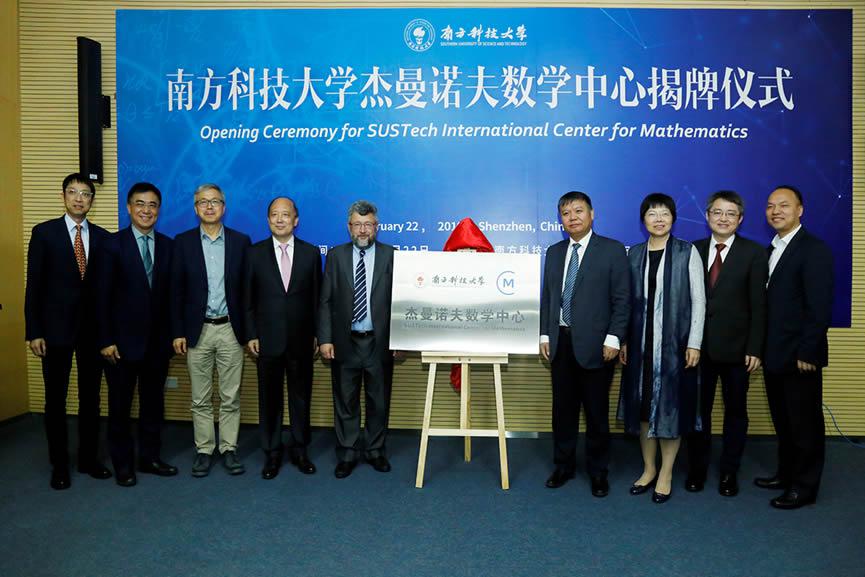
International Center for Mathematics
The SUSTech International Center for Mathematics, officially established on February 22, 2019, is a scientific research center funded by Shenzhen Municipal Government and located at Southern University of Science and Technology. The Scientific Director is Fields Medalist Efim Zelmanov.
It aims to advance scientific research in pure mathematics as well as applied and computational mathematics in Shenzhen, the Greater Bay Area, and beyond. The Center will focus on important research fields in both pure and applied mathematics. Its primary goal is to promote basic research in mathematics and advance interdisciplinary research of mathematics in life science, information science, engineering, and finance, etc.
The governing of the Center will follow international standards for major global mathematics centers. It provides a first-class research environment for researchers and visitors alike, hosting annual thematic programs and focused research groups.
Shenzhen Grubbs Institute
As an international research institution supported by Shenzhen government, Shenzhen Grubbs Institute will attract top Chinese and foreign scientists and their research teams to participate in cooperation, with Professor Grubbs's international influence in the field of catalysis and materials, aiming to develop into a fundamental research center with Chinese characteristics and profound global impact. By building the Homogeneous Catalysis platform in Organic Synthesis and Polymer Synthesis and Polymer Synthesis and Characterization, the institute will focus on innovation and scientific research, and strive for industrial achievements to promote the upgrading and transformation of Shenzhen-related industries.


Research Institute of Trustworthy Autonomous Systems (RITAS)
The Research Institute of Trustworthy Autonomous Systems (RITAS) was officially announced by the Shenzhen Municipality on 1 November 2019, with a total investment of 100 million RMB over five years. It is led by Turing Award Laureate, Professor Joseph Sifakis, a Distinguished Visiting Professor from the Department of Computer Science and Engineering at Southern University of Science and Technology (SUSTech), as the Institute Director, and assisted by Professor Xin Yao as the Executive Director of RITAS. Currently, RITAS has 30 professors (PIs), of which 8 are IEEE fellows and over 70 research fellows, postdoctoral researchers, and research students. RITAS’s mission is to carry out both fundamental and applied research in trustworthy AI systems using a highly interdisciplinary approach by bringing people together from artificial intelligence, computer science, system engineering, mathematics, operations research, cognitive science, and psychology. It covers five major areas, including autonomous driving, smart cities, AI and medicine, machine learning systems, and trustworthy software systems. The common theme cutting across all these areas is trustworthiness --- how can we develop trustworthy autonomous systems? What does trustworthiness mean for an application scenario? How to measure trustworthiness? These are some of the primary research questions that will be addressed by RITAS. RITAS has three essential pillars to support its growth and long-term sustainability, including the cultivation of research talents, international cooperation, and knowledge transfer to industry. It recruits international talents with the most competitive pay packages and ample research funding. It has an open and stimulating environment for young researchers to grow and develop their careers. It aspires to become a world-class research institute in trustworthy autonomous systems and their applications.


